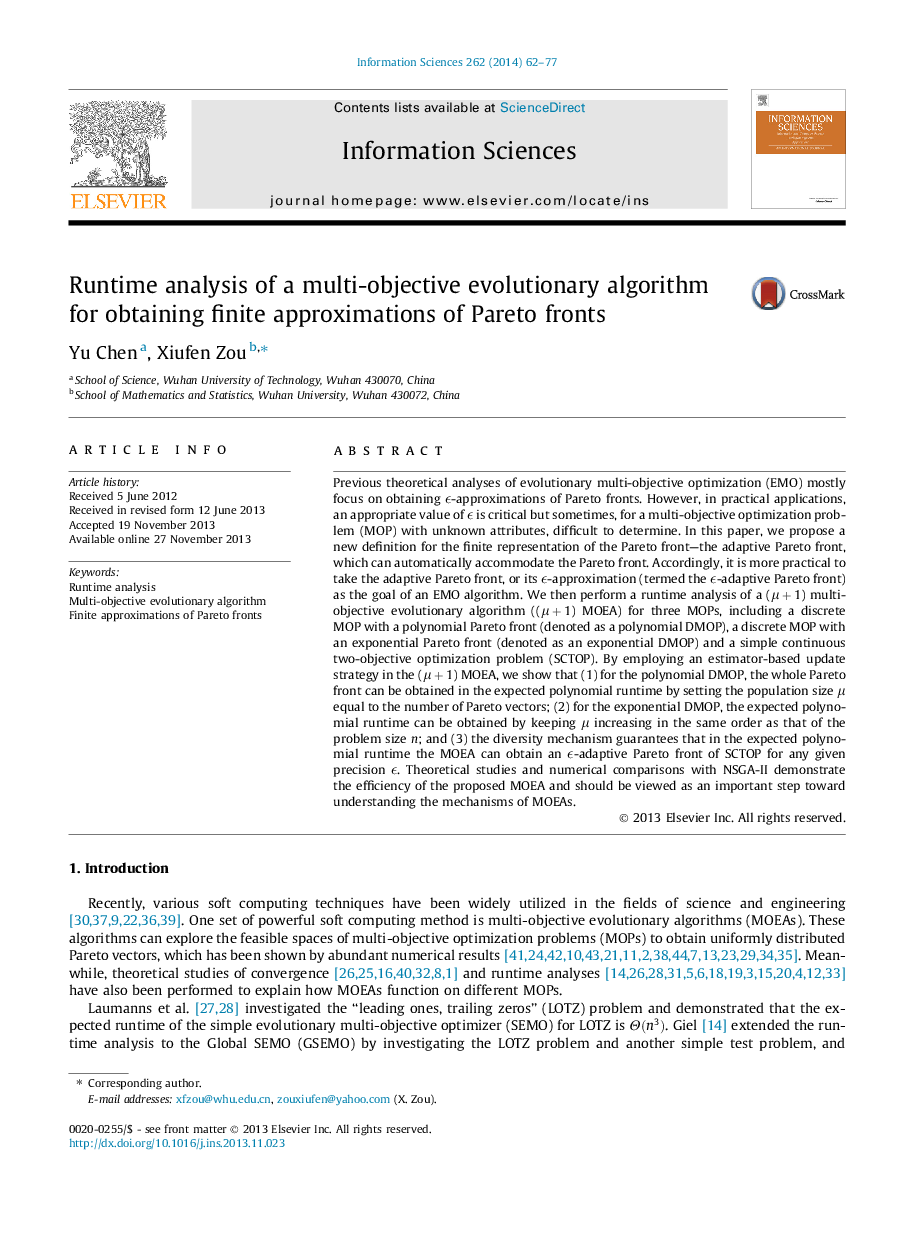ترجمه فارسی عنوان مقاله
تجزیه و تحلیل زمان اجرای یک الگوریتم تکاملی چند هدفه برای به دست آوردن تقریب متناهی از جبهه پارتو
عنوان انگلیسی
Runtime analysis of a multi-objective evolutionary algorithm for obtaining finite approximations of Pareto fronts
| کد مقاله | سال انتشار | تعداد صفحات مقاله انگلیسی |
|---|---|---|
| 78908 | 2014 | 16 صفحه PDF |
منبع

Publisher : Elsevier - Science Direct (الزویر - ساینس دایرکت)
Journal : Information Sciences, Volume 262, 20 March 2014, Pages 62–77
ترجمه کلمات کلیدی
تجزیه و تحلیل زمان اجرا؛ الگوریتم تکاملی چند هدفه؛ تقریب محدود از جبهه پارتو
کلمات کلیدی انگلیسی
Runtime analysis; Multi-objective evolutionary algorithm; Finite approximations of Pareto fronts

